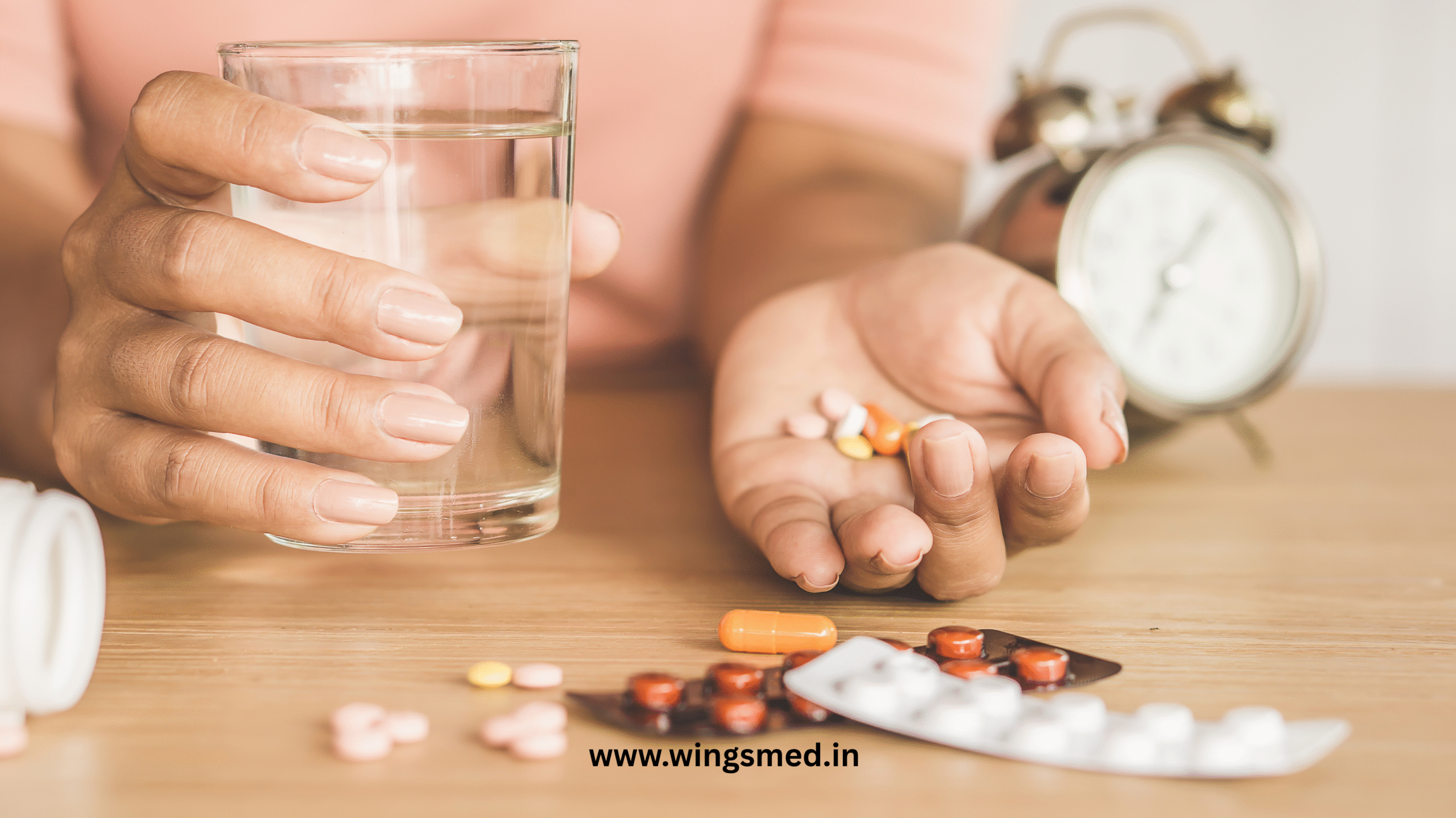HealthCare, WingsMed
Why Doctors Recommend Taking Medicines with Hot Water — Not with Other Drinks?

When we take medicine, most of us don’t think twice about what we drink it with. However, doctors and pharmacists always recommend taking medicines with hot or warm water — not milk, juice, tea, or soft drinks.
This advice is based on medical science, not just tradition. Let’s understand why.
💧 1. Better Absorption and Faster Action
Warm water helps dissolve tablets and capsules more easily in the stomach.
This quick dissolution ensures that the medicine is absorbed faster into the bloodstream, allowing it to start working sooner.
Cold water or chilled beverages can slow down this process, delaying the drug’s effectiveness.
⚗️ 2. Avoid Harmful Chemical Reactions
Many common drinks contain substances that can react with the chemicals in medicines.
These interactions may reduce the medicine’s effect or cause harmful side effects.
For example:
- Milk can interfere with certain antibiotics like tetracyclines and ciprofloxacin.
- Citrus juices (especially grapefruit juice) can affect how the liver breaks down drugs.
- Coffee or tea contains caffeine and tannins that may change drug absorption.
- Soft drinks and alcohol can irritate the stomach and react with many prescription medicines.
In contrast, plain water is chemically neutral — it doesn’t interfere with the medicine’s function or composition.
🌡️ 3. Gentle on the Stomach
Warm or lukewarm water is soothing for the digestive system.
It helps relax stomach muscles and reduces irritation caused by certain medicines (like antibiotics, iron supplements, or painkillers).
Cold or carbonated beverages, on the other hand, can cause cramps, acidity, or bloating when combined with medication.
🫗 4. Easier to Swallow
Taking medicine with warm water can make swallowing smoother and more comfortable.
It relaxes the throat muscles and helps the tablet pass easily down the food pipe, especially helpful for children and elderly patients.
🚫 5. Why Other Drinks Are Not Safe Options
|
Drink Type |
Possible Effects on Medicine |
| Milk | Forms complexes with antibiotics; lowers effectiveness |
| Coffee / Tea | Caffeine changes drug metabolism; may cause restlessness |
| Juice (especially citrus) | Alters stomach acidity; can delay absorption |
| Soft Drinks | Contain acids and sugars that interfere with medicines |
| Alcohol |
Increases side effects; can cause liver damage when mixed |
Best Way to Take Medicines
- Always take medicines with lukewarm or room-temperature water (never boiling hot).
- Drink a full glass (around 200 ml) unless your doctor advises otherwise.
- Avoid other beverages for at least 30 minutes before and after taking the medicine.
- Follow specific instructions on your prescription (some drugs require an empty stomach or food).
🩺 Final Note
It may seem like a small thing, but the liquid you use with your medicine matters a lot.
Plain warm water ensures your medicine works effectively, safely, and without unwanted interactions.
So, next time you take your pill — skip the coffee or juice and reach for that glass of water.
Your body will thank you for it.
